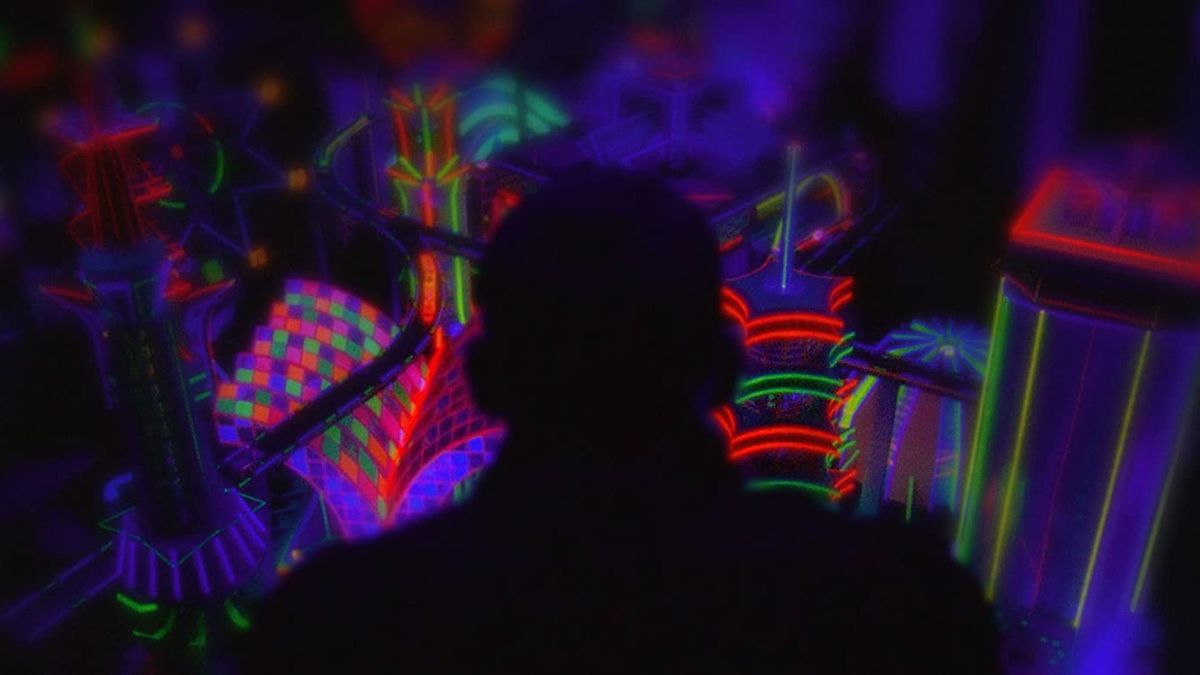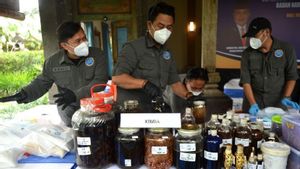JAKARTA - For a long time, science has shown that the content of dreams and emotions is related to one's waking state. Strange dreams that are full of symbolism have something to do with the dreamer with his strong memories or the daily psychological pressures that his subconscious faces. Nightmares, on the other hand, can be warning signs of anxiety that we may not be aware of in our daily lives.
Reporting from National Geographic, Tuesday, April 28, currently hundreds of millions of people have decided to stay at home under the threat of contracting COVID-19. Some dream experts believe that their "resignation" from the everyday environment has resulted in many people having a "scarcity of inspiration" which forces the subconscious mind to be more interested in the past and thus influences the dream path.
At least five research teams from various institutions in many countries are collecting case examples and one of their findings so far is that dreams related to the pandemic are caused by stress, self-isolation, and changes in sleep patterns which create a vortex of negative emotions regulating dreaming. walk.
"We usually use REM and dreams to deal with strong emotions, especially negative emotions ... Obviously, this pandemic is producing a lot of stress and anxiety," said Patrick McNamara, a professor of neurology at Boston University School of Medicine who specializes in dreams.
Psychedelic reactions
During dreaming, stress makes the brain go on a journey. The neurobiological signals and reactions that produce dreams are similar to the effects of psychedelic drugs, according to McNamara. Psychedelics activate a nerve receptor called serotonin 5-HT2A, which then shuts down a part of the brain called the dorsal prefrontal cortex.
The result is known as 'emotional disinhibition' which is a state in which emotions overwhelm consciousness, especially during the REM stage, or when we normally dream. Even though this process occurs every night, most people usually don't remember their dreams.
Living under the COVID-19 pandemic may change it due to increased self-isolation which leads to stress, affecting the content of dreams and allowing some dreamers to remember more of their dreams. In addition, anxiety and lack of activity reduce sleep quality.
Frequent waking, also called parasomnias, also results in increased memory of dreams. Emotions and memories from the previous day can also influence the content of a dream and a person's emotional response in the dream itself.
More nightmares
According to an ongoing study carried out by the Lyon Neuroscience Research Center in France that began in March, the COVID-19 pandemic has led to a 35 percent increase in remembering respondents' dreams. Respondents reported 15 percent more nightmares than usual.
A different study conducted by Associazione Italiana in Medicina del Sonno (Italian Association of Sleeping Medicines) analyzed the dreams of Italians confined during the COVID-19 outbreak. Many people experience nightmares and parasomnias along with symptoms of post-traumatic stress disorder.
"Not surprisingly, a few years ago when we studied survivors of the 2009 L'Aquila earthquake, we found sleep disturbances and nightmares were very dependent on the position of the survivor with the epicenter," said Luigi De Gennaro, a psychology professor.
Results from De Gennaro's ongoing study and other research suggest that people who are at increased risk of a pandemic, such as nurses, doctors, and those with family members who have contracted the plague, are more likely to experience dreams affected by the outbreak.
Overcoming nightmares
Various studies have shown that the habit of waking up also creates memories that affect the content of dreams. The emotions that carry over from waking up that day can affect what we dream later and how we feel about it in the dream itself.
Reducing or limiting daily activities due to self-isolation can limit the content of dreams or cause the subconscious to acquire deeper memories. However, Finnish researchers scientifically support the idea that peace of mind leads to a 'positive dream effect' in which dreamers feel good about what is happening in their dreams.
Conversely, the anxiety associated with 'negative dreams' results in subsequent dreams that are frightening or disappointing. Deirdre Barrett, assistant professor of psychology at Harvard University, collects and analyzes dreams of survivors of traumatic events.
Barrett found that dreams of traumatized people tend to follow two patterns: they either directly recreate a traumatic event or a beautiful dream but with symbolic elements that support the trauma.
In his latest sample of his coronavirus dream study, which he began collecting in March, several respondents reported that they dreamed of catching the virus or were dying of the virus. As for other data collected by Barrett, respondents found fear of viruses with metaphorical elements, such as insects, zombies, natural disasters, or monsters.
"Except for healthcare workers' dreams, we don't see a vivid visual image of people struggling to breathe on a ventilator ... This virus is invisible, and I think that's why it's turning into so many different things," Barrett said.
For those experiencing COVID-19 nightmares, there is growing evidence that so-called 'dream mastery techniques' can reduce their suffering. When Barrett treats patients by constructing their own dreams, he often asks how they would like the nightmare to be different.
Once a patient knows a new direction for his dream, they can write it down and practice it before going to sleep. The new directions ranged from more tangible solutions, such as putting up a fight or eliminating a fear.
The English, Chinese, Japanese, Arabic, and French versions are automatically generated by the AI. So there may still be inaccuracies in translating, please always see Indonesian as our main language. (system supported by DigitalSiber.id)









